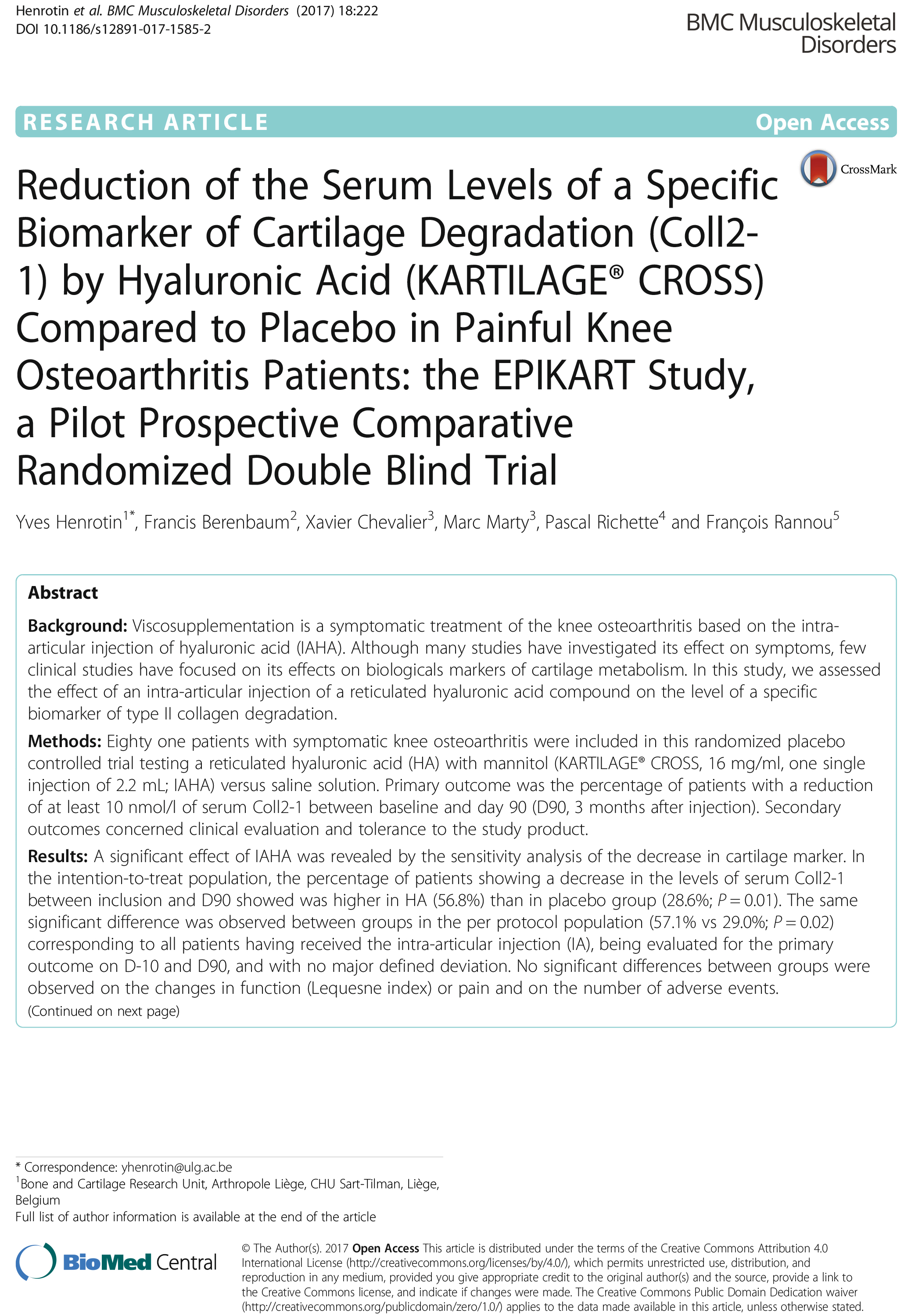
Identify patient and treatment factors that predict a favorable response to intra-articular hyaluronic acid (HA) treatment to better guide patient and treatment selection
Reduction of the Serum Levels of a Specific Biomarker of Cartilage Degradation (Coll2- 1) by Hyaluronic Acid (KARTILAGE® CROSS) Compared to Placebo in Painful Knee Osteoarthritis Patients: the EPIKART Study, a Pilot Prospective Comparative Randomized Double Blind Trial
Article specifications
This clinical trial was published in 2017 in Journal of BMC Musculoskeletal Disorders (IF 2018: 1.52) by Belgium specialists. The aim of this study is to the effect of an intra-articular injection of a reticulated hyaluronic acid compound on the level of a specific biomarker of type II collagen degradation. Eighty one patients with symptomatic knee osteoarthritis were included in this randomized placebo controlled trial testing a reticulated hyaluronic acid (HA) with mannitol (KARTILAGE® CROSS, 16 mg/ml, one single injection of 2.2 mL; IAHA) versus saline solution.
Results
The result of this study shows that IA injection of reticulated HA with mannitol in knee osteoarthritis patients can reduce the serum levels of Coll2-1, a marker specific of type II collagen degradation. This finding suggests that IAHA may have a beneficial effect on cartilage degradation and that Coll2-1 could be used for the assessment of a single intra-articular treatment in clinical trials.
Tags: Belgium BMC Musculoskeletal Disorders Clinical trial 2017
